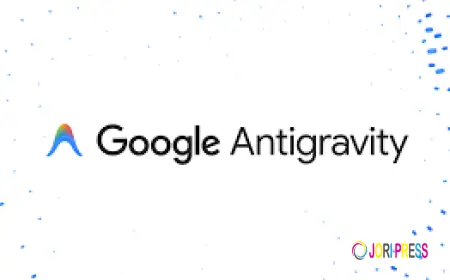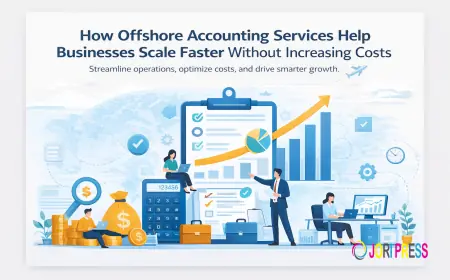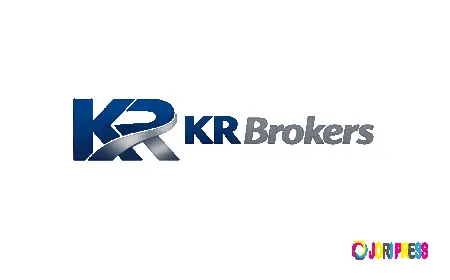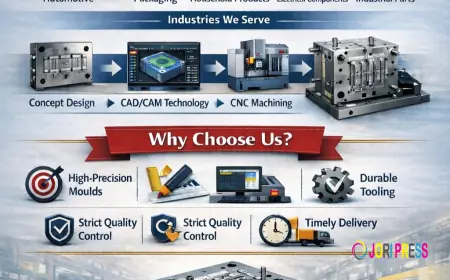NFT Marketplace Development: Key Features, Costs, and Benefits in 2025
NFT Marketplace Development in 2025 empowers businesses with secure, scalable, and feature-rich platforms to monetize digital assets, engage global audiences, and drive brand growth.
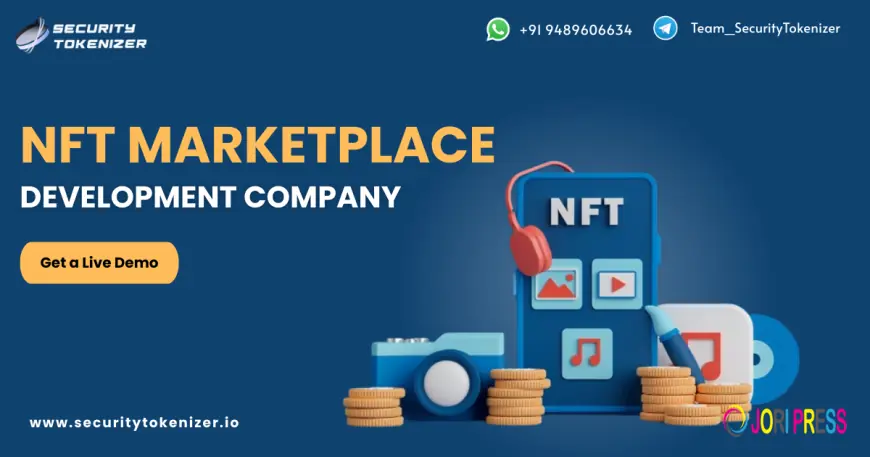
The rise of NFTs has transformed digital ownership, opening exciting opportunities for businesses to engage audiences, monetize digital assets, and innovate in new ways. NFT marketplaces have become the backbone of this ecosystem, enabling creators and collectors to trade unique digital items securely and efficiently.
However, building a strong NFT marketplace requires more than just a good idea. Security, scalability, and a smooth user experience are crucial for success in a competitive market. By utilizing the expertise of an NFT marketplace development company, businesses can create feature-rich, secure platforms that not only attract users but also drive revenue and brand loyalty.
What is an NFT Marketplace?
An NFT marketplace is a digital platform where users can create, buy, sell, and trade non-fungible tokens (NFTs). These platforms act as intermediaries between creators and collectors, ensuring secure and transparent transactions.
NFT marketplaces come in different types:
Open Marketplaces: Anyone can mint, buy, or sell NFTs.
Closed Marketplaces: Only approved creators or businesses can list NFTs.
Hybrid Marketplaces: Combines features of both open and closed marketplaces.
Key Features of an NFT Marketplace in 2025
Modern NFT marketplaces are more than just digital storefronts; they are feature-rich platforms designed to provide seamless experiences for buyers, sellers, and creators. Working with an experienced NFT Development Company ensures these features are implemented securely and efficiently. Key features include:
User-Friendly Interface: Intuitive design for smooth navigation and engagement.
Secure Wallet Integration: Support for popular wallets like MetaMask and Coinbase Wallet for safe transactions.
Smart Contract Automation: Automated royalty payments, transactions, and ownership verification.
Multi-Chain Support: Ability to operate across blockchains like Ethereum, Solana, and Binance Smart Chain for broader reach.
Auction & Bidding Systems: Real-time auctions and competitive bidding to increase user participation.
Admin Panel & Analytics: Track performance, monitor user activity, and gather insights to optimize the platform.
Cost Factors in NFT Marketplace Development
Establishing a resilient NFT marketplace entails multiple expense factors that companies should take into account prior to commencing the initiative.
Platform Complexity: The number of features, multi-chain support, and custom functionalities directly impact development costs.
Security Measures: Smart contract audits, secure wallet integrations, and anti-fraud mechanisms are critical investments.
Blockchain Fees: Gas fees, cross-chain deployment, and transaction costs can vary depending on the chosen blockchain.
Design & User Experience: Custom UI/UX design ensures the platform is intuitive and engaging for users.
Maintenance & Upgrades: Ongoing support, bug fixes, and platform updates are necessary for long-term success.
Benefits for Businesses Launching an NFT Marketplace
Launching an NFT marketplace offers businesses a range of strategic and financial advantages:
New Revenue Streams: Generate income through listing fees, transaction commissions, and premium services.
Global Reach: Access a worldwide audience of collectors, creators, and investors.
Improved Brand Engagement: NFTs allow businesses to interact with their audience in innovative ways, such as exclusive digital collectibles or loyalty rewards.
Market Differentiation: Establish your business as a pioneer in the digital asset space by leveraging blockchain technology.
Secure & Transparent Transactions: Blockchain ensures all transactions are verifiable, immutable, and trustworthy, increasing investor confidence.
Emerging Trends in NFT Marketplace Development
The NFT ecosystem is evolving rapidly, and businesses need to stay ahead to remain competitive:
DeFi Integration: Combining NFT marketplaces with decentralized finance features like staking and lending.
Multifunctional Fractionalized NFT: Allowing multiple users to own and interact with a single high-value NFT, increasing accessibility and utility.
Cross-Chain Interoperability: Ensuring NFTs can be used and traded across multiple blockchain networks.
Gamification & Interactive Experiences: Boosting participation through immersive NFTs, virtual gatherings, and incentivized prize systems.
Advanced Analytics & AI Tools: Utilizing artificial intelligence to provide data-driven pricing insights, forecast market trends, and customize user interactions.
Why Choose Security Tokenizer for NFT Marketplace Development
Entering the NFT space can be challenging without the right expertise. As a leading NFT Marketplace Development Company, Security Tokenizer empowers businesses to build secure, scalable, and feature-rich platforms. From smart contract audits to secure wallet integrations, every aspect is designed to protect both the platform and its users while ensuring seamless transactions.
Beyond security, Security Tokenizer focuses on creating marketplaces that drive engagement and revenue. With custom features like auctions, royalties, and multi-chain support, businesses can offer a customized experience that aligns with their goals.
What's Your Reaction?
 Like
0
Like
0
 Dislike
0
Dislike
0
 Love
0
Love
0
 Funny
0
Funny
0
 Angry
0
Angry
0
 Sad
0
Sad
0
 Wow
0
Wow
0

